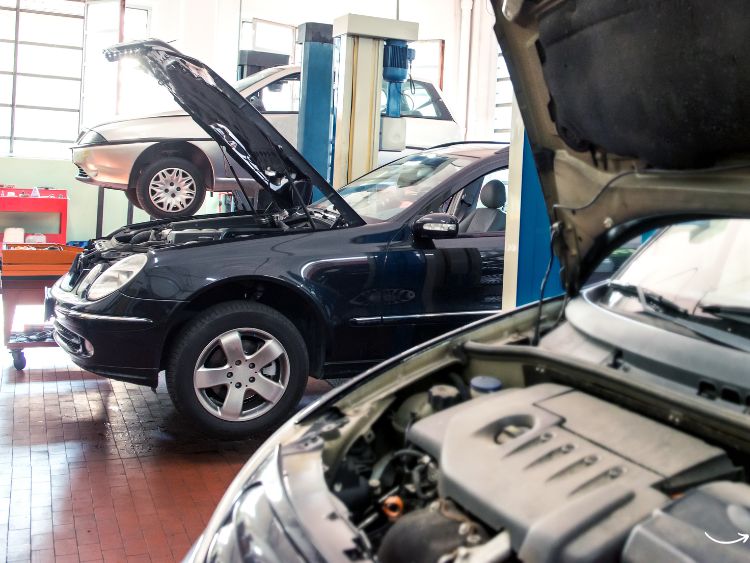Utility vehicles are the unsung heroes of many industries, from agriculture to construction and even recreation. They’re built to endure tough conditions, haul heavy loads, and keep going when the going gets tough. But, just like any piece of machinery, they need regular maintenance to keep them running smoothly. In this comprehensive guide, we’ll dive into everything you need to know about utility vehicle maintenance, from routine checks to troubleshooting common problems. So, buckle up and let’s get your utility vehicle back on track!
The Importance of Regular Utility Vehicle Maintenance
Keeping your utility vehicle in good condition isn’t just about avoiding breakdowns—it’s about maximizing performance and extending the lifespan of your vehicle. Neglecting maintenance can lead to costly repairs, downtime, and even safety hazards. Here are a few reasons why regular maintenance is crucial:
- Safety: Regular checks can prevent accidents caused by mechanical failures.
- Efficiency: Well-maintained vehicles run more efficiently, saving you money on fuel.
- Longevity: Routine maintenance extends the life of your vehicle, protecting your investment.
- Resale Value: A well-maintained vehicle holds its value better if you decide to sell.
Essential Maintenance Tasks
1. Routine Inspections
Regular inspections are the cornerstone of utility vehicle maintenance. These inspections should cover:
- Fluids: Check oil, coolant, brake fluid, and hydraulic fluid levels.
- Tires: Inspect for proper inflation, tread wear, and damage.
- Brakes: Ensure brake pads and discs are in good condition.
- Lights: Check all lights, including headlights, tail lights, and indicators.
- Battery: Inspect the battery for corrosion and ensure it’s holding a charge.
2. Oil and Filter Changes
Just like your car, your utility vehicle needs regular oil and filter changes to keep the engine running smoothly. Follow the manufacturer’s recommendations for oil type and change intervals. Typically, this should be done every 50-100 hours of operation.
3. Air Filter Maintenance
A clean air filter ensures your engine receives the right amount of air, improving fuel efficiency and performance. Check the air filter regularly and replace it if it’s dirty or damaged.
4. Tire Maintenance
Proper tire maintenance is essential for safety and efficiency. Regularly check tire pressure and inflate to the recommended levels. Inspect for any signs of wear or damage and replace tires as needed.
5. Brake System Check
Your brakes are crucial for safety. Regularly inspect brake pads, discs, and fluid levels. If you notice any unusual noises or reduced braking efficiency, it’s time to service the brakes.
6. Battery Care
A dead battery can halt your operations. Keep the battery terminals clean and check the charge regularly. If the battery is more than a few years old, consider replacing it to avoid unexpected failures.
7. Cooling System Maintenance
The cooling system prevents your engine from overheating. Regularly check the coolant level and inspect hoses for leaks or damage. Flush and replace the coolant according to the manufacturer’s schedule.
Troubleshooting Common Issues
Even with regular maintenance, problems can still arise. Here are some common issues and how to troubleshoot them:
1. Engine Won’t Start
- Check the battery: Ensure it’s charged and the terminals are clean.
- Inspect the fuel system: Make sure there’s fuel in the tank and the fuel filter isn’t clogged.
- Look at the ignition system: Check for faulty spark plugs or ignition coils.
2. Poor Performance
- Check the air filter: A dirty air filter can reduce engine performance.
- Inspect the fuel system: Ensure the fuel filter and injectors are clean.
- Examine the exhaust system: Look for blockages or damage.
3. Overheating
- Check the coolant level: Make sure there’s enough coolant in the system.
- Inspect the radiator: Look for leaks or blockages.
- Examine the water pump: Ensure it’s functioning properly.
4. Unusual Noises
- Inspect the belts: Look for signs of wear or damage.
- Check the suspension: Make sure all components are secure.
- Examine the brakes: Worn brake pads can cause squealing or grinding noises.
Seasonal Maintenance Tips
Spring and Summer
- Check the cooling system: Hot weather can strain your cooling system, so ensure it’s in top condition.
- Inspect tires: Warmer temperatures can affect tire pressure, so check and adjust accordingly.
- Clean the vehicle: Remove any mud, dirt, or debris that may have accumulated over the winter.
Fall and Winter
- Inspect the battery: Cold weather can reduce battery efficiency, so ensure it’s fully charged.
- Check the heating system: Make sure the heater is working properly.
- Examine tires: Consider switching to winter tires for better traction in snow and ice.
FAQs
1. How often should I perform maintenance on my utility vehicle?
It’s best to follow the manufacturer’s recommended maintenance schedule, typically every 50-100 hours of operation.
2. What type of oil should I use in my utility vehicle?
Always use the oil type specified in your owner’s manual. Using the wrong oil can damage the engine.
3. How can I tell if my brakes need servicing?
If you hear squealing or grinding noises, or if the brakes feel less responsive, it’s time to service them.
4. Why is my utility vehicle overheating?
Overheating can be caused by low coolant levels, a faulty radiator, or a malfunctioning water pump.
5. How do I maintain my utility vehicle battery?
Keep the terminals clean and ensure the battery is charged. Consider replacing the battery every few years.
Summary
Maintaining your utility vehicle is essential for safety, efficiency, and longevity. By performing regular inspections, changing fluids, and addressing common issues, you can keep your vehicle running smoothly and avoid costly repairs. Remember to follow the manufacturer’s maintenance schedule and address any problems promptly. With proper care, your utility vehicle will continue to be a reliable workhorse for years to come.
